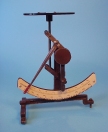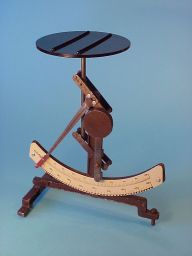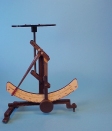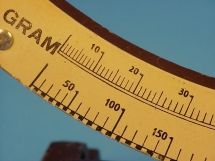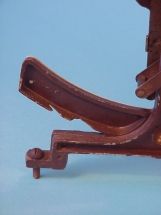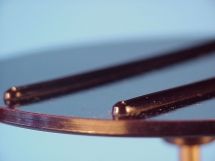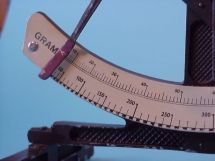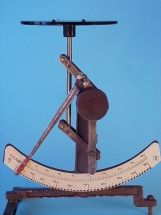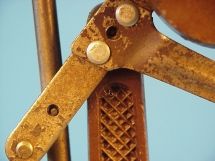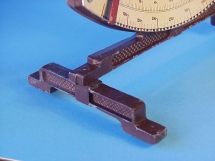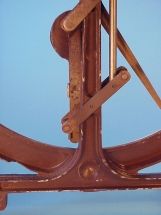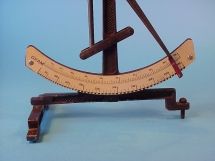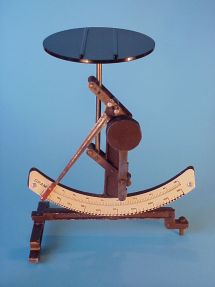
scale with bakelite plate
This letter scale has no mark at all. The frame is aluminum. In 1886 aluminum was made electrolytically for the first time. Most parts of the mechanism are magnetic steel. The round plate with two ribs is bakelite. This was invented by the Belgian (later American by naturalization) chemist Baekeland and is dated to 1909. For more bakelite information and details visit the virtual Bakelite museum. The scale has a turn-over counterweight. With the counterweight at the lower position, the 500 grams chart is to be used. With the counterweight in the upper position, the other range till 100 grams is to be used. This scale has a zero adjustment screw. The one mounted probably is not the original one. I don't know the maker or the country of origin. The realized direction of reading at the letter scale is logical: from left to right. The scale is positioned concav for easy reading.
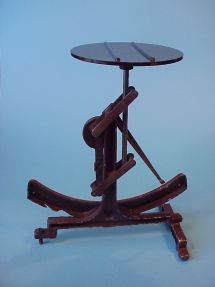
rear view of scale
